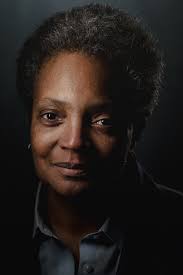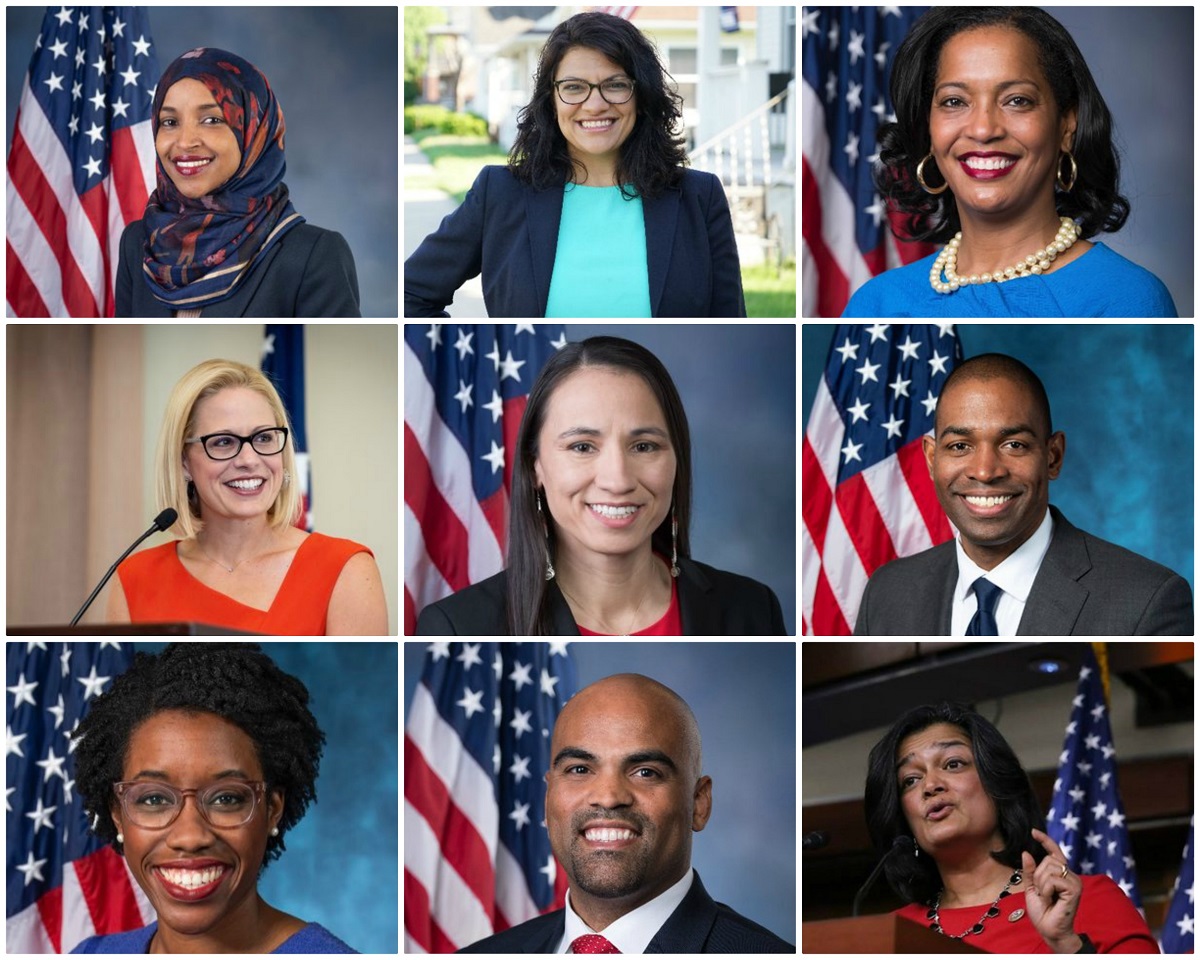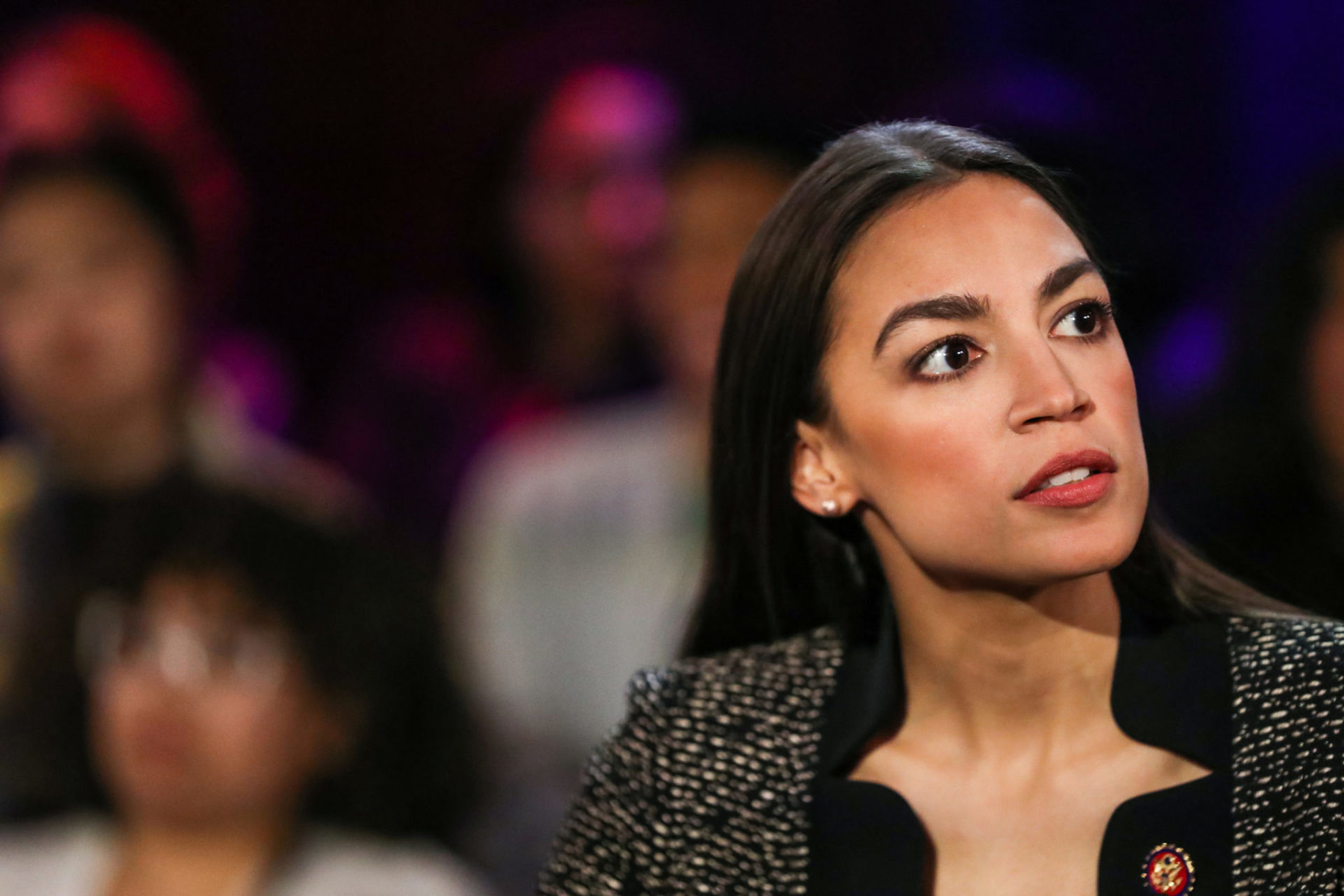When Republicans in the Senate rejected consideration of the Green New Deal on March 26, Trump had a curious reaction. He expressed hope the GND wouldn’t die because, as he’d said in an interview on Fox Business, he wants to campaign against it, expecting an easy win:
“You look at this Green New Deal — it’s the most preposterous thing. Now I don’t want to knock it too much right now because I really hope they keep going forward with it, frankly, because I think it’s going to be very easy to beat.”
Easy to beat? That depends. It depends on who the politicians are backing it and how much real support the Green New Deal has from the American people. Turns out the Green New Deal has plenty of support from the people.
Growing Popular Support for the Green New Deal
While America is a bastion of climate deniers, people’s attitudes about climate change are shifting. Recently, 8 percent of Americans were reported to have changed their mind on climate change, mainly as a result of experiencing extreme weather.That may not sound like much, but it is a definite step forward in the face of deeply entrenched opinions.
A New York Times article, published on 27 March 2019, reported that many groups in American society, described by the Times as “environmental, labor and racial justice organizations” have been working for many years, decades even, towards “a new framework for climate policies”.
Examples of “multiyear effort” resulting in concrete action abound, notably the Climate and Community Protection Act, a New York State law that mandates emissions reductions and investments in affected communities and the SB 535 in California that specifically targets low-income disadvantaged communities with funding from the state’s cap-and-trade program. And that program is certainly not recent: It was authorized by the California Global Warming Solutions Act of 2006.
The Green New Deal (GND) is an idea that has its roots in a Thomas Friedman article for the New York Times published in 2007 and it was eventually developed by the the Green New Deal Group which published its report on July 21, 2008. The GND deliberately echoes the past glories of FDR and the economic New Deal of the 1930s. Indeed, the GND calls for a “new national, social, industrial, and economic mobilisation on a scale not seen since World War II and the New Deal.”
Basically the idea is that the Green New Deal (GND) will save the planet while “ensuring that workers in fossil fuel industries still have economic opportunities”. The goal is to “to fight for clean air, clean water, decarbonization, racial justice and good jobs at the same time.”
GND is squarely about facing the issues of climate change and income inequality – two issues that are perversely linked and cannot be dealt with separately.
What is new about the Green New Deal is that it combines “immediate concerns about pollution with more abstract discussions about carbon emissions”. And those “immediate concerns” about maintaining our water and air clean is precisely what wins over climate deniers.
Data for Progress commissioned a series of polls on the Green New Deal showing that popular support at state level since 2016 is growing steadily. Policies like green jobs, drinking water infrastructure and reforestation were found to be “wildly popular”. There is no state in the U.S. where at least some aspects of the Green New Deal will not be “winning issues” – in particular, clean water is seen as a priority everywhere.
Likewise, rejecting funding from fossil fuel money is popular as shown by a new polling from 350 Action and Data for Progress conducted by YouGov Blue. And phasing out fossil fuel infrastructure in favor of renewables gained even more support (only 26% against, fully 56% in support).
The Green New Dealers: Who are they?
So far, in spite of popular support for the Green New Deal, the Republican propaganda machine has done an effective job of pushing it back. As Sean McElwee, one of the founder of Data for Progress pointed out, progressive politicians still need to coordinate their efforts. “The Green New Deal,” he said,”is the future of the Democratic Party: Among likely Democratic primary voters in our Civis polling, 71 percent supported the Green New Deal and 14 percent opposed it.”
So who are the politicians backing the Green New Deal?
They are mostly young, progressive, in short, millennials deeply representative of the younger generations’ concerns over the future, the fate of the planet and social justice.
And they have the backing of some extremely active political groups. One is the youth-led Sunrise Movement that made a splash after holding a sit-in at Speaker Nancy Pelosi’s (D-Calif.) congressional office with some 200 activists demanding attention for climate change. This move convinced 40 Congressmen to support the GND.
Another is Justice Democrats (JD) an American progressive political action committee (PAC) founded in 2017 as an offshoot of the Bernie Sanders presidential campaign and presently run by Alexandra Rojas. With the stated goal of reforming the party , JD endorsed 79 candidates in the 2018 elections. As a result, 26 of them won their respective primary elections and seven won in the general election, including Alexandria Ocasio-Cortez.
Here is a closer look at two among the most active supporters of GND:
Alexandria Ocasio-Cortez
Unquestionably the most visible “green” paladin is Congresswoman Alexandria Ocasio-Cortez (D- New York) currently the youngest Representative (born 1989) She defeated the ten-term incumbent Congressman, Democratic Caucus Chair Joe Crowley, in what was widely seen as the biggest upset victory in the 2018 midterm election primaries.
On 7 February, Rep. Ocasio-Cortez introduced a resolution (H. Res. 109) to promote the Green New Deal, together with Senator Ed Markey (D-Massachusetts) who did likewise for the Senate.
Note a recurring theme: She insists the GND issue is bipartisan, it is systemic, it concerns everybody.
Beto O’Rourke
On April 1 (and it’s not a joke), former Rep. Beto O’Rourke (D-Texas), the young Democrat who ran for the Senate in 2018 and was narrowly defeated by Republican incumbent Senator Ted Cruz, and a 2020 presidential candidate, intervened during the “We the People Membership Forum” giving his full support to GND: Those “who have helped to champion and to write the Green New Deal” he said, “are absolutely right on the money”:
Note his call to the “young people”. It will be to them, he says, that we will “owe our progress”.
The Ground is Shifting Under the Democrats and it’s not just the Green New Deal
Over in Europe, signs are multiplying that the Old Left is on its way out and a New Left is rising – with groundbreaking politicians like Carlo Calenda in Italy launching the “Siamo Europei” (We are Europeans) movement and new youth-led parties like Volt Europa working across Europe, present in at least ten countries.

But things are changing in America too, and the ground is shifting, notably under the Democrats. Chances are that if the Republicans don’t join in, they will lose their grip on power for decades to come.
New ideas are emerging and new people too. We are living in a time of deep change. Just look at what happened in Chicago on 2 April: Lori Lightfoot got elected Mayor, a total outsider, new to politics – someone who has never held elected office, who is a black woman and gay.
It’s a “new day for Chicago” as her website says, but not only for Chicago. It’s a “new day” all over the country.
There are new, active politicians on the ground, people we have never seen before, notably politicians who openly declare themselves to be gay: Jared Polis, 43, the first ever gay governor, he defeated the Republican Walter Stapleton in Colorado and Pete Buttigieg, 37, the two-term mayor of South Bend Indiana, a Rust Belt town of 100,000, home to Notre Dame University, who entered the 2020 presidential race on 23 January.
Buttigieg is unusual. He may not win but, as CNN put it, the fact that a gay married man is running a serious campaign for president is “a big deal”. It shows that “ the politics surrounding gay marriage and LGBT equality shifted dramatically” since Obama became the first sitting president to support same sex marriage.
Buttigieg clearly has some solid credentials: A Harvard graduate and former Rhodes Scholar, a linguist (he speaks seven languages) and elected mayor at 29. He has managed to relaunch and develop the town and was named mayor of the year in 2013 by the website GovFresh.com. He served a seven-month Naval Reserve tour in Afghanistan while mayor.
But Congress is perhaps the place where the shift is most visible. The midterm elections brought into Congress not only Alexandria Ocasio-Cortez but a slew of new faces with new ideas. Here is a quick rundown of those who clocked in many “firsts” (though that still leaves many out):
Ihlan Omar, 37, a refugee from Somalia, she won the primaries in Minnesota and entered Congress with nearly 80% of the votes; she is the first naturalized citizen from Africa, the first Somali-American and one of the first two Muslim women elected to Congress along with Rashida Tlaib;
Rashida Tlaib, 42, a lawyer, eldest in a family of 14, Muslim; her parents are Palestinians who had first emigrated to Nicaragua; the only other member of Democratic Socialists of America (DSA) beside Ocasio-Cortez to serve in Congress;
Jahana Hayes, 45, recognized as National Teacher of the Year, she had a difficult upbringing in public housing projects in Waterbury, Connecticut; she is the first African American woman and first African American Democrat to represent Connecticut in Congress;
Kyrsten Sinema, 42, a former Green Party activist and bisexual, she has been in the House of Representatives since 2012 and won the Senate seat for Arizona in 2018 replacing retiring Senator Jeff Flake, defeating Republican nominee Martha McSally;
Sharice Davids, 38, the first openly LGBT Native American elected to Congress; she won in Kansas defeating the Republican Kevin Yoder; she is a Winnebago, a.k.a. Ho-Chunk in Wisconsin; the other first Native American woman elected to Congress is Debra Haaland, 58, an attorney who beat the Republican Janice Arnold-Jones in New Mexico;
Antonio Delgado, 41, a Rhodes scholar and attorney, of Afro-American and Puerto Rican ancestry, born and brought up in Schenectady New York, author of a rap album of songs against social injustice, he beat the Republican John Faso by barely two points;
Lauren Underwood, 32, a registered nurse who worked as a Senior Advisor at the Department of Health and Human Services (HHS); she is an Obamacare advocate and won in a traditionally Republican district in Illinois;
Colin Allred, 35, a civil rights attorney and former football player, he managed to beat Pete Sessions, a powerful Republican in Texas;
Pramila Jayapal, 54, a Seattle-based civil rights activist and founder and executive director (until 2012) of OneAmerica, the largest immigrant advocacy organization in Washington State, she is the first Indian-American woman to serve in the House of Representatives.

The Green New Deal Died a Republican Death in the Senate: What next?
Ocasio-Cortez has not given up. After the non-binding resolution, which proposed to eliminate U.S. greenhouse gas emissions within a decade, lost 57-0 in the Senate, with 43 Democrats voting “present”, Ocasio-Cortez said “you had virtually the entire Democratic caucus voting ‘present,’ even those in tough states. That is an extraordinary amount of unity within the Senate to actually vote in that cohesive of a bloc, so I’m very encouraged.”
She is now reported to be drafting a series of smaller, related bills. Senator Ed Markey, following the vote in the Senate, said the onus was now on the Democratic-controlled House to take action. “Committee after committee have had the first hearings that haven’t been held for eight years,” he said, underlining how climate change is really a new theme for Congress. “And ideas and legislation will start emanating from committee after committee looking specifically at what has to happen.”
Perhaps the most encouraging result is that GND has forced Republicans to take climate change seriously. And they’re coming up with proposals.
Many Republican members of Congress, including Lindsey Graham (R-South Carolina) and Mitt Romney (R-Utah) believe it is better to invest in research and development and incentivize innovation than punish polluters with emissions limits or a carbon tax.
Senator Lamar Alexander (R-Tennessee) is even more ambitious. He proposes that the U.S. should “launch a New Manhattan Project for clean energy”, calling for the federal government to double its funding for energy research and increase investments in things like advanced battery technology for energy storage, nuclear programs, and carbon capture, seen as the “holy grail of clean energy.”
This is good news. Because we can effectively address climate change only if we all act together – Republicans included.
EDITOR’S NOTE: The opinions expressed here by Impakter.com columnists are their own, not those of Impakter.com
Featured Image: U.S. Representative Alexandria Ocasio-Cortez (D-NY) speaks to members of the media following a televised town hall event on the “Green New Deal” in the Bronx borough of New York City, New York, U.S., March 29, 2019. Source: REUTERS/Jeenah Moon










